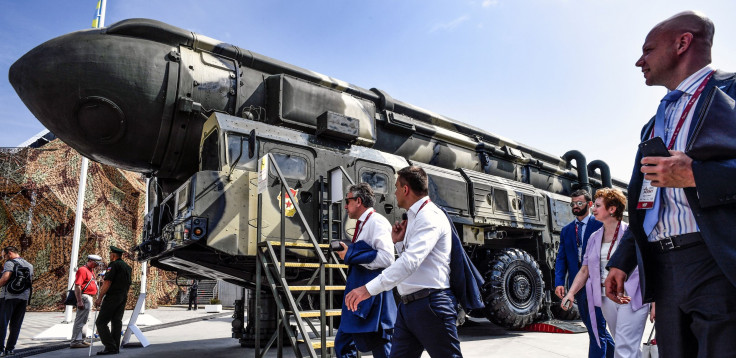Russia To Test Deadly ICBM That Can 'Beat Any Defenses'

The Russian military prepared to test the next generation of its intercontinental ballistic missile (ICBM), which can supposedly beat any defenses and penetrate the US’ defensive field. The tests are planned to take place before the end of 2017, reported state-run Sputnik news agency website.
The testing of RS-28 Sarmat, the new missile, was delayed multiple times. Russia’s military planned to test the missile’s first few seconds of flight at the Plesetsk Cosmodrome, a Russian spaceport located north of Moscow, before the end of the year. Government-controlled media sources reported the 100-plus-ton ICBM could destroy a Texas-sized area. The missile is intended to resist missile defenses by using hypersonic warheads, called MIRVs.
“The main aim is to check the rocket’s systems at the moment of leaving the silo, the switching on of the Sarmat’s first stage and the following five seconds [of flight],” reported The Times that a source said.
The RS-28 missile will replace the R-36 missile. According to Russian state-affiliated sources, the missile will have an 11,000 km range and the capability to “speed past every missile defense system in existence.” According to RIA Novosti, a Russian state-operated news agency, the RS-28 launch silos, or storage areas, could handle seven nuclear strikes. The agency also reported the new ICBM would have a throw weight, the mass of all components minus fuel and launch rocket, of five tons.
However, Michael Kofman, a research scientist from the Centre for Naval Analyses, expressed his doubts about these claims to The National Interest in August, saying it is unlikely to fit so much into five tons of throw weight.
“There are large questions outstanding about conflicting claims about throw-weight, warheads and penetration aids,” he said.
Russia has planned to begin using the RS-28 by the beginning of the next decade.
© Copyright IBTimes 2025. All rights reserved.





















